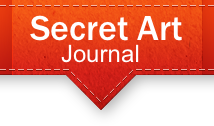

Sound Advice, Part 4
SOME EXCEPTIONS
Thus far we have discussed the sound system needs of solo magicians working for audiences with 50-500 people. The “portable PA” systems by Anchor and Apollo are excellent. I also shared two wireless remote music systems: one based on a simple switch and a Sony Walkman purchased through Radio Shack and another professional mini-disk system, Remote Commander IV by Majiloon. However, life is not perfect, and professionalism is often defined by how one encounters extreme challenges that prevent us from using the ideal setup.
WHEN BRINGING YOUR OWN PA IS NOT AN OPTION: Sometimes I have been hired for a large show where either I want to pack small and light or the PA is being provided in my contract. However, one time, the lapel microphone was not working until an hour before performance – phew! Here is what I would suggest: Bring everything but the amplifier and speakers:
- A small four-channel mixer. They cost $60 at Radio Shack. You can find others at Longs Electronics, Full Compass or any other quality music equipment store. The
mixer does not need to be stereo. - Your own separate wireless microphone transmitter and receiver.
- Your remote music system (minidisk, CD, tape, MP3 etc.)
- A small bag of audio adapters of every plug known to humanity. Make sure you can change sizes between standard 1/4″ and 1/8″ plugs, between male and female of various kinds, back and forth to RCA connectors (the crown shaped connector with a prong in the middle), between stereo and mono, between high impedance and low impedance. In particular, make sure you can to convert “impedance.” That way you can take standard pre-amp signals and feed them into the microphone inputs of basic PA systems found in clubs, halls, schools, congregations and theaters across the country.
DO YOU REALLY NEED A MIC? Keep that question in mind. Using a microphone can add a synthetic quality to the performance. With groups of 100 or less, you might try just projecting your voice more, but avoid trying to speak over music. In October 1999, I saw Jeff McBride do an especially powerful two-hour-thirty-minute show (yes, read that again) in Salem, MA, packed in a reception hall with over 150 people. The only thing he used was a fairly powerful boom box operated by his immensely-talented assistant, Abbi Spinner.
FOR THE EXTREMELY BUDGET MINDED: If the PA options listed above are simply too cost prohibitive for your needs, another option is to purchase a $60 four channel mixer from Radio Shack, an inexpensive wireless lapel microphone for under $150, and a used 100 Watt Keyboard Amplifier from your local music store. By the way, never buy an FM microphone because the quality is far too poor. For a good affordable wireless, try Gemini brand wireless microphones – DJs love them. Radio Shack’s affordable wireless lapel systems are actually made by Sure, but to lower specifications. The more reliable microphones are called “true diversity” because they can switch frequencies when they sense interference with their current signal.
CREATIVE MOMENTS BETWEEN ROCKS AND HARD PLACES: Years ago, I arrived to perform, and the promised sound system was not there, so I put on my creative cap and fed a Sony Walkman headphone signal into a small “Gorilla” practice guitar amplifier. Another time, we needed sound fast and improvised with a 20 watt 3 piece computer speaker system from a nearby office. I once fed a portable CD Player into a house PA system through a microphone input with a $10 impedance converter from Radio Shack. In these situations I was performing for 100-150 people, and the systems worked fine in a pinch. However, I kept them well out of sight to maintain my professional image. Early on, before adding music, I did a 20 minute stand-up set with a microphone on a stand. Honestly, it was a great show, but I was limited to talking in that one location. Now, I always have a long, soft, black shoelace in my cases. In a pinch or as a backup, a shoelace can be tied around a corded mic and worn about the neck. I did this once for an impromptu “coffee house” show while traveling one summer. I used a lace from one of my boots – the ingenuity garnered me some enthusiastic applause!
And is this not what performing magic is all about? Making magic a simple, ingenious, powerful and wonderful gift for our audiences? I hope these things have been helpful to you as you seek to make better use of music and sound in your performances.
REFERENCES:
Apollo
Long’s Electronics. Look under “Public Address and Music”
Full Compass. Another quality online electronics store — again look under “Public Address”
About the Author
David Reed-Brown is a part-time professional magician who specializes in conveying meaningful messages for secular and spiritual audiences through classical stand-up magic. He also performs walk-a-round magic for various restaurants and businesses on the central Connecticut shoreline. Full time, David is an ordained member of the clergy and serves a socially progressive church in Essex, Connecticut. He holds a BA from Denison University in Computer Science and Music and a Masters of Divinity Degree from Andover Newton Theological School. He is a proud member of the Mystery School of Magic, and a regular student at McBride’s Master Class. David and his wife, Cindy, enjoy leading an annual summer music camp for Junior High and Senior High youth.
© David Reed-Brown, 2001





